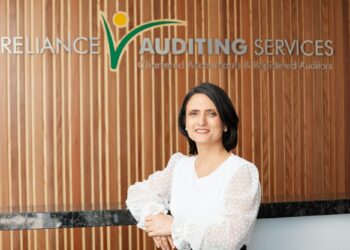Naz Randeria, director of Reliance Auditing Services, said low-cost auditing services for SMSFs have been a problem for the past couple of years and disappointingly the industry “seems to have come to accept it”.
“I have no idea why it is happening, but we auditors are smack bang in the middle of it,” Randeria said.
“It’s not just the cost [of the audit] – automation costs money and you also have to look at security, insurance and various other factors. In AI generation, all these things cost money, and at the end of the day, after using software, it comes down to professional judgement and people can’t seem to appreciate that.”
Randeria said while superannuation is a “fantastic tool” if a trustee wants to be self-sufficient and lead a comfortable life in retirement, they have to learn “to play by the rules”.
“And as auditors, we are the first line of defence for trustees that they don’t seem to appreciate.”
“We [auditors] can’t do anything further than warn people that if you want [to use] low-cost providers you put yourself at risk.”
Randeria continued there are increasing opportunities for auditors to upskill regarding their education and training.
“But it is a real risk that some auditors are not doing this. We face challenges every single day to understand the latest rules and legislation.”
“Unless you have cash and shares and you want to make use of the retirement planning available through this space, then be prepared to provide information to auditors. It doesn’t have to be too expensive. It is not just about ticking boxes, there is a huge compliance and strategy component involved as well.”
Recent legal actions against auditors such as the Melisssa Caddick case should serve as warning signals to the industry and trustees, she added.
“Every time something like that happens it makes our [auditors] life more difficult.”
“We have to put in 10 more measures to combat it and it is tiring having everything [about the auditing industry] put in a negative light.”
Shelley Banton, head of technical for ASF Audits, said there is a growing expectation that auditors will accept a lower fee for their services.
“Auditors are not wanting fees to go lower, but it is a competitive approach. Every auditor has their own business model, and they have a particular fee base and variety of fee structures. But if, for example, a large client comes in and says they are going to move to an auditor that charges less, the original auditor may have to lower their fee to retain that client, and it then becomes an independence issue.”
Earlier this month, the ATO suspended three SMSF auditors over independence issues as part of its risk assessment program.
The three auditors were referred to ASIC by the ATO and suspended for breaching the independence requirements by auditing thousands of funds from a single referral source.
“I think we are all very aware of the pressures on SMSF auditors such as market valuations, NALI, in-house assets, and illegal early release. These are the high-risk areas auditors know they have to be quite particular about and to make sure their files are complete, that their conclusions are well documented and supported by evidence,” Banton said.
“Making sure you are crossing your t’s and dotting your i’s is of greater importance with ATO focus on compliance. For example, the ATO has been talking about the importance of market valuations for a few years and regulating guidance on it, and it has not come out of thin air. The ATO’s scrutiny of SMSF auditors is to strengthen the overall governance and transparency within the SMSF industry, ultimately protecting the interests of SMSF members.”


